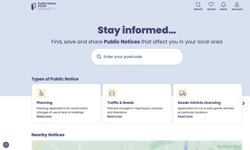Social networking has been something of a phenomenon. Friends Reunited, MySpace, Facebook… all have made millions for their founders, and helped former spotty, unattractive teenagers track down their schoolboy / girl crush to a trailer park in Lowestoft, and breathe a sigh of relief.
Many people have looked at the apparent similarity between this online social networking activity, and the business networking that goes on at thousands of exhibitions, conferences, receptions and presentations, and mused that if you could get online business networking going, you could really clean up.
Surely, what people do at these physical events is meet new people, pitch their services to them, and then go away with business in their pockets. Really, doing this online would be much more efficient, and save the awful bother of actually going anywhere.
So, where are the winners?
But so far, there are very few examples of online business networking in practice. LinkedIn is one of the few that looks like it’s working. It now has over 23 million users worldwide (a million of them are in the UK), less than Facebook’s 70 million, but still a big group. Certainly, it goes beyond ‘critical mass’, and is growing at a million a month. But even so, it doesn’t seem to really take off.
LinkedIn is a good way of not losing touch with someone just because their email changes. In essence, that’s what Facebook does too (only with added ‘poking’), but LinkedIn also gives you a chance, in theory, to enact the online equivalent of introducing yourself to someone at a business event – cold-contacting one of your contacts’ "trusted contacts", or getting them to introduce you to them. But, in fact, this is not as common an occurrence as is a recruitment consultant trying desperately to source appropriate candidates for a current assignment.
Consequently, LinkedIn is known as a ‘good way to get recruited’, and people structure their profiles and thinking accordingly. So, could it be the context that people approach LinkedIn that stops it being a real business generator?
Closed discussion
My own experience of online networking began back in the nineties with the concept of the ‘discussion forum’. All we did was set up open spaces where people could post questions, post answers to questions, disagree with previous answers, and so on. While we thought there would be enthusiastic uptake of such services, nothing could have been further from the truth.
Participation in discussions was tiny. I remember finding that, unless we posted a question, and usually a couple of answers, we wouldn’t coax any interaction out of anyone. Eventually we discontinued the discussion forum service when it became clear that three staff were servicing the online networking needs of two nutters. Running online business interaction was seriously hard work.
Like a party
You’d think that online networks are like parties. When you invite a load of mates round, you introduce people, start conversations, top up drinks and stand away. Once the room is full, you don’t really need to do this anymore (apart from the drinks bit), as a critical mass has been reached, and people are getting on with the party themselves. Duplicate this online, and you’ve got Facebook.
But, online, there are a few differences. For one, there’s no booze. More importantly though, when you’ve gone to the trouble of physically going to a party, you’re prepared to put a bit of effort in to have a good time – if the first person you speak to is a bit of a prat, then, well, you’ll try talking to someone else before running for a cab.
But if all that separates you from the party and your own sofa and a good film is the short walk from your computer to the living room, then the level of effort you’re prepared to put in will be much smaller, and the host will have to try much harder to make sure you meet the right people to keep you at the party.
So, online networks are like parties, only really hard work ones where your guests sullenly refuse to get on, or talk to each other, and you finish the night exhausted and hungry.
Why does it have to be so hard?
It would be much better then to be able to get something going that doesn’t require the constant effort. Here it may pay to think of what sort of community you’ve got. Just as you tailor your party to the group of people you’ve invited – you can tailor your online community to the people you can get there.
If your group is professionally shy, as many are, then they will need some really good reason to be coaxed out of the shadows. A lot of people are very nervy about what they can say online these days. High profile incidents such as the witch-hunt of the Civil Serf have made people scared that they may be fired if their employer doesn’t like what they do. (In case you’re wondering, Civil Serf was a blogger who styled themselves as a UK civil servant disclosing gossip and inside information on government figures. The site closed March 10 this year; some have alleged that it was ‘closed down’ by an embarrassed government. More info at civilserf.blog.co.uk) This, combined with the fear of looking a fool in front of your peer group, means there has to be a really good reason to make a contribution.
What makes people pipe up?
There are various reasons why people in your community might want to ‘put their hand up’ online, and some are shown in the box below. A good first step in understanding what role online business networking can play in your website would be to think which description most closely matches your customers.
Since the most sustainable of these seems to be the ‘information exchange’ – where people are interacting in a non-competitive way with each other, just helping each other because it’s a good thing to do – it may be useful to see if there are ways you can create the conditions for that one to work on your site.
Can you, for example, select a subset of your community with the right characteristics and provide something just for them? If your customer group spans a supply chain, for example, can you give one section of it their own space to interact, where they are safe from being preyed on by the others? Can you get one of them to moderate and administer the space? It could be like a closed group on Facebook – visible, but not open to anyone who doesn’t pass the entrance tests.
If in this way you can create a true information exchange, you’re on your way to providing a sustainable online business network - one where people get continuous satisfaction, either from helping, or being helped.
From inspection of the online business networking activity going on, it seems this is the one way to build something which will actually gather momentum after launch, and sustain itself without undue and uneconomic effort on the part of the host. Ironic, that it seems the innate desire of people to do good will provide businesses with an opportunity to generate profit online.
Goodsamaritan.com, it’s the only way.
(Note: no offence to the real tumbleweed.com (an online security specialist highly rated by a number of people, including Gartner) or to the real goodsamaritan.com (the sales site for the healing ointment of the same name, ‘ideal for cuts, scrapes and cracked skin’) is meant by either reference in this article. Nor indeed to Lowestoft, which is a lovely place.)
| Different types of online business networks / discussion forums The information exchange: communities who genuinely feel they can pull together will be at home in this sort of environment. What is essential is that individuals do not feel that they compete with others. Ideal applications here are the free airing of problems, and the free giving of advice to help solve them. Examples: InCirculation’s own forum - incirculation.co.uk/cs/forums/default.aspx, and Farming Weekly’s FWispace - www.fwi.co.uk/Community/ The showing off zone: will work in an industry full of big heads, particularly those who think the world simply doesn’t respect or reward them enough. Here, there will be competition to solve people’s problems, if there are any – the biggest snag is that no-one wants to admit to having a problem in the first place. So, if you want to get something going here, you’re going to have to post some imaginary problems for the big heads to solve. Example: www.experts-exchange.com (an IT problem posting page; you post your problem, and experts rush to solve it). The ‘please give me a job’ space: likely to succeed in industries where demand for jobs outstrips supply, and people can get trapped in a job they no longer enjoy or find challenging. In such cases, people are likely to try to flag themselves up in networks that look a bit like LinkedIn, as they think / hope that headhunters are rooting through the participants aiming to hand out six-figure salaries. Example: LinkedIn – www.linkedin.com The open sales warfare space: some spaces set up for networking are in industries where the desperation to sell is matched only by the small number of buyers, and their general shyness of being sold to. This results in the entire space being taken up by people shouting about how good their products and services are, and why the buyers should be buying them. Of course, unfortunately for all the sellers, the buyers have all run away with their hands over their ears. Example: Facebook’s ‘facebook 4 business’ group. 18,000 members, and all of them with something to sell. Loudly. Tumbleweed.com: typically designed for thoughtful professions such as engineering, where British politeness combines with professional reticence and fear of embarrassment to make people actually scared to contribute. Discussion forums and plaintive requests for help are met with the online equivalent of a stony silence, and internet tumbleweed scampers across the screen. Example: all the discussion forums in ‘the professions’. |










